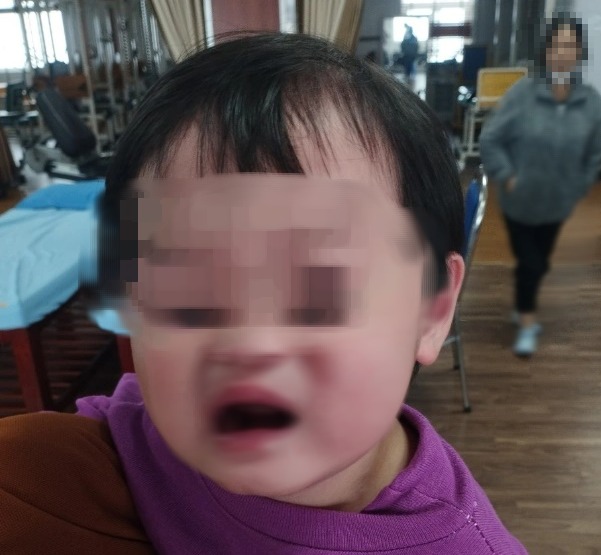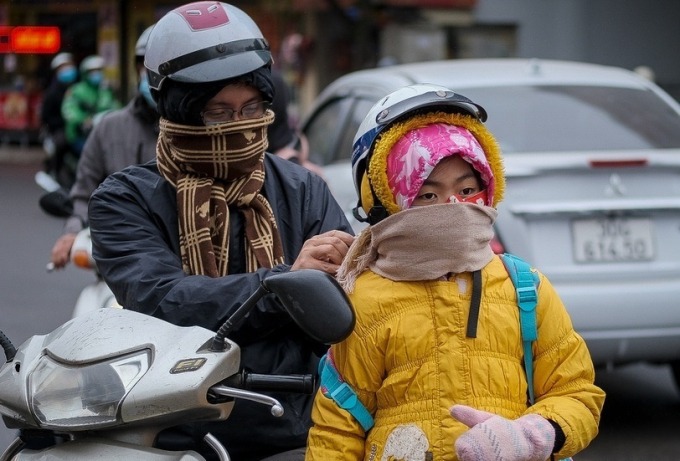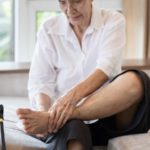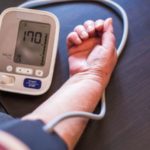2-year-old girl droops her mouth and has peripheral facial nerve palsy due to riding a motorcycle at night
According to information from the Traditional Medicine and Functional Rehabilitation Center, Phu Tho Provincial Hospital, recently, the hospital has recorded a case of a 2-year-old child with peripheral facial nerve palsy.
Specifically, the patient is a girl named T.G.H, only 24 months old, from Viet Tri city. She was admitted to the hospital with symptoms of mouth drooping and inability to close her eyes due to sudden coldness when her parents took her on a motorcycle ride at night.
The girl’s mother said that before getting sick, she rode a motorcycle and returned home around 9 pm in the transitional weather conditions, with wind and cold. Due to excessive trust, her mother did not bring a helmet or warm clothes for her.

Prior to this, the girl had no injuries or falls. The next morning, the family discovered that she had a crooked mouth when she smiled or cried, and while eating porridge or drinking milk, water flowed out of her left mouth corner. Her left eye also did not close when sleeping. The family took her to the Emergency Department of Phu Tho Provincial Hospital for immediate examination.
At the hospital, the girl underwent a computed tomography scan of the brain, which did not reveal any skull injuries. Ophthalmology and Otolaryngology examinations did not detect any problems with her eyes and ears, nose, and throat. The doctor concluded that she had peripheral facial nerve palsy.
The girl H was treated for peripheral facial nerve palsy with various methods such as acupuncture, acupressure, massage, and infrared therapy. However, due to her young age, the treatment process faced many difficulties. After 3 weeks of treatment at the Traditional Medicine and Functional Rehabilitation Center, the girl T.G.H showed positive progress, with good eating ability, improved facial features, no more crooked mouth, and the ability to close her eyes. Currently, she has been discharged from the hospital.
In addition to the case of T.G.H, the center has also recorded many other children with peripheral facial nerve palsy during the transitional cold weather.
Peripheral facial nerve palsy, known in traditional medicine as “khau nhan oa ta,” can affect anyone, regardless of age. Therefore, it is necessary to prevent this disease when the weather suddenly turns cold.
Symptoms of the disease include inability to pucker the mouth, incomplete eye closure, sagging or slightly stiff face, crooked mouth, and difficulty in drinking water. If not promptly treated, the disease can leave sequelae such as facial paralysis and, especially, aesthetic loss. If left untreated for too long, it can become an incurable condition.
Doctor’s recommendations for preventing cold-related diseases in children:
Keep the head, face, and neck warm: In cold weather, it is important to keep sensitive areas such as the head, face, and neck warm to prevent health problems related to cold weather, such as stroke or peripheral facial nerve palsy.
Minimize sudden opening of doors during cold weather: To avoid cold wind blowing into your face, especially when it’s cold outside, minimize the sudden opening of doors and protect your living area from cold winds.

Avoid sitting near windows in the evening: In cold weather, it is best to avoid sitting near windows in the evening to avoid drafts, ensuring a warm and comfortable living space.
Dress warmly when going out in the evening: If you have to go out in the evening, dress warmly, wrap a scarf around your neck, and wear a hat to keep your body warm and protect it from the cold wind.
Keep the jaw warm and wear a mask when traveling long distances: When taking children on long trips, especially in cold weather, it is necessary to keep their jaw warm and wear a mask to protect them from cold winds and other factors that can affect their health.
Care for children’s bathing: When bathing children, pay attention to using warm water and choose a suitable bathing time. Bathe children in the morning from 9:30-10:30 am or in the afternoon from 1-4 pm, avoiding bathing late at night. The bathing time should also be kept within 5-10 minutes for older children and no more than 2-3 minutes for infants. This helps prevent colds and fevers in children.





































